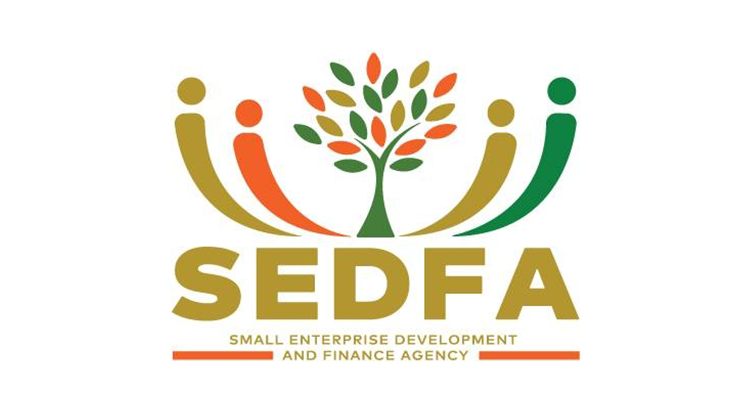
Township Economy: “Building a self-reliant and vibrant township economy”
Wednesday, 1 September 2021
Chairperson of the National Council of Provinces
Ministers and Deputy present
Honorable Members
Introduction
This debate is taking place in the context of a number of challenges facing the economy of our country . which on amongst others include increasing unemployment. For an example according to the recent Quarterly Labor Force Survey the number of unemployed persons increased by 584 000 to 7,8 million compared to the first quarter of 2021.
These changes resulted in the official unemployment rate increasing by 1,8 percentage points from 32,6% in the first quarter of 2021 to 34,4% in the second quarter of 2021 - the highest since the start of the QLFS in 2008.
This means that the unemployment rate according to the expanded definition of unemployment increased by 1,2 percentage points to 44,4% in quarter 2 of 2021 compared to quarter 1 in the same year .
All this is happening at a time when the country was ceased with addressing the negative socio -economic impact of colonial and apartheid system that left black and African population excluded from participating in the main economic activities of their country.
Just as we were taking qualitative steps to address the colonial and apartheid legacy the country had to deal with the 2007 /2008 Global Economic Crisis. Just as we were beginning to consolidate our activities to address the impact of this crisis, we had to face the attack and impact of COVID -19 on the economy.
As if this was not enough, the country had to face a wave of unrest which mainly affected Kw- Zulu – Natal and Gauteng and affected in the main the SMME sector.
Today’s debate on the Township Economy with the theme “Building a self-reliant and vibrant township economy” represents a call for the continuation of the task of addressing the challenges confronting our country and a call to remain in touch with the reality facing our people.
As comrade Che Guevara put it that “the road is long and full of difficulties. At times we lose our way and must turn back. At other times we go too fast and separate ourselves from the masses. Sometimes we go too slow and feel the hot breath of those treading at our heels. In our zeal as revolutionists we try to move ahead as fast as possible, clearing the way. But we know we must draw our nourishment from the mass and that it can advance more rapidly only if we inspire it by our example”.
This debate is about how we can make our country’s economy to be at the service of our people as a whole based on the Freedom Charter’s clarion call that “the people shall share in the country’s wealth , that all other industry and trade shall be controlled to assist the well-being of the people; and that all people shall have equal rights to trade where they choose, to manufacture and to enter all trades, crafts and professions”.
Historical Perspective and background
The starting point in this debate should be to acknowledge that in our country, townships and rural villages were a source of cheap and unskilled labor at the service of the white colonial and apartheid economy . This painful reality continues to stir at us as we see our people being carried by bakkies to be exploited as cheap labor.
Our approach in this debate is also informed by the history of our country which shows that .in the aftermath of the British invasion and conquest over the Cape, in 1795, the colonial port of Port Elizabeth was established.
It is here that spatially segregated urban development was first designed along racial divisions. The process of dispossession was coupled with British authorities enacting the Native Reserves Locations Act 40 in 1902, granting powers for the establishment of residential areas for blacks on the periphery of urban areas.
It was through the direct and decisive state intervention which allowed the Broederbond to form the Volkskas bank in 1934.
It is the Afrikaner Broederbond, the National Party and Afrikaner economic movement which made a call for a stop to the issuing of trading licences to blacks.
This was taken up by the National Party in its 1944 "Social and Economic Manifesto" which declared that under apartheid "non-whites" would only be issued trading licenses in non-white areas. This pressure from Afrikaner business culminated in the notorious Group Areas Act of 1950.
This background has been provided to communicate a point that successful enterprise development will not happen on its own without strategic, calculated, deliberate and decisive state intervention.
What work has been Done and what are the plan underway?
Honorable chairperson we have therefore come here today to continue on the work of removing all the remaining effects of apartheid and we want to remove them root, stem and branch. Chairperson, we proceed from an understanding that the work of building a self-reliant and vibrant township economy is linked to the work being undertaken by the department of human settlement and Agriculture , land reform and rural development on Spatial Planning and Land Use Management Services which is aimed at transforming the apartheid spatial set up where our people were settled away from well-located land in prime urban areas and away from arable land.
It is linked to the vision of building urban spaces that are spatially and socioeconomically integrated, free of racial and gender discrimination and segregation, enabling people to make residential and employment choices to pursue their ideals.
It is linked to building cities that are environmentally sustainable, marked by a balance between quality-built environment and open space, as well as a balance between consumption needs and renewable and non-renewable resources.
Work Being undertaken by the Department of Small Business and Development
The work done to provide support towards Township and Rural enterprises scheme include the following:
Non-financial support provided as at 31 July 2021:
a. Spaza Shops and General Dealer Support Scheme: 7300
b. Clothing, Leather and Textile support scheme: 3229.
c. Tshisanyama and Cooked Food Scheme: 2865.
d. Personal Care Scheme: 1508.
e. Bakeries and Confectioneries: 1291.
f. Autobody repairers and mechanics: 1289.
g. Butcheries Support Programme: 270.
Approvals for financial support as at 5 August 2021:
a) Spaza Shops and General Dealer Support Scheme: 5 680 approvals to the value R19 880 000 with 6 717 jobs facilitated.
b) Small-Scale Bakeries & Confectionaries Programme: 321 SMMEs assisted with financial support committed to the value of R49 596 and 881 jobs will be facilitated.
c) Small-Scale Clothing & Textile Programme: 416 SMMEs assisted with financial support committed to the value of R67 023 and 1 114 jobs will be facilitated.
d) Open Air Food Outlets Support Scheme, 249 SMMEs assisted with financial support committed to the value of R40 081 and 434 jobs will be facilitated.
Disbursements as at 05 August 2021:
a) Spaza Shops and General Dealer Support Scheme:
- 5 680 disbursed to the value of R19 880 000 and 6 717 jobs facilitated.
b) Small-Scale Bakeries & Confectionaries Programme:
- 206 SMMEs assisted with financial support committed to the value of R31 340 and 500 jobs facilitated.
c) Small-Scale Clothing & Textile Programme:
- 253 SMMEs assisted with financial support committed to the value of R42,013,799 and
- 500 jobs facilitated.
- Open Air Food Outlets Support Scheme,
- 116 SMMEs assisted with financial support committed to the value of R19 550 and 163 jobs facilitated
Our financial commitments toward the support of Township and Rural enterprises, as well as Co-operatives for the 2020/21 financial year, have included spending R31.1 million towards Co-operatives and allocated R88.6 million for the current financial year.
We will remain pragmatic in our approach, and I am pleased to advise that the Fruit and Veg Vendor Support Programme has been revised as the Informal Traders Support Programme.
The intension is to ensure that all forms of informal trading are accommodated. Having said that, as at July 2021, non-financial support has been provided to 5 693 Fruit and Vegetable vendors. Our plan is to assist 20 000 informal traders over the MTEF period.
Our plan for the MTEF period will also include spending R271.1 million to support Co-operatives.
For Township and Rural enterprises, we have spent R1.166 billion and allocated R694 million for the current financial year.
Furthermore, we understand some of the critical sectors that our township and rural enterprises are involved in. As a result of this we have together with the Department of Sport Arts and Culture developed a Creative Industries Masterplan. As the Department we will support over 2 700 crafters through the Craft Customised Sector Programme over the medium term.
Our plan for the MTEF period is to spend R2.099 billion towards “Building a self-reliant and vibrant township economy”
Urgent Strategic interventions to be undertaken
Our most urgent work is to start addressing the following:
a) Ensuring an effective coordinated approach to get various government departments to work together . We cannot continue working as individual departments when our people and the economy can benefit from our collective programs and partnerships.
b) Aggressively repurposing our programs towards fundamentally transforming townships and rural villages into sites for productive activities through encouraging and supporting township entrepreneurs to produce everything that is possible within and around a township space, given the infrastructure, skills and technology at their disposal.
c) Getting SMMEs participate in identified strategic sectors of the economy such as in mining , gas, agro-processing ,green economy , manufacturing etc
d) Regulation and Policy which includes addressing barriers to entry caused by municipal by laws , zoning regulations , expensive business licensing, harassment by government officials, legal system/conflict resolution
e) Addressing crime and Corruption which has been identified as the biggest challenge impacting negatively in the growth and development of township business activities. This will include turning the very challenge of crime and corruption into a business opportunity for SMMEs, for an example for those in the security and ICT sectors
f) Ensuring access to finance which includes access to finance and cost of finance.
g) Ensuring Access to markets by Small businesses
h) Ensuring relevant Education and Skills. For those involved in businesses
i) Ensuring infrastructure which Includes space to operate, telephone or internet, electricity, transportation and access to land.
j) Addressing challenges of unfair competition which includes a consideration to addressing crowding out of small business caused by by big bussing establishing their activities in townships. We will work wit the competition commission to make proposals to further strengthen competition laws to fight against unfair competition practices by big business.
Using the District Development Model to Build self-reliant and vibrant township economy”
Ladies and gentlemen, as the department of Small Business Development, we are at the forefront of implementing the District Development model. We have allocated officials as Provincial and District champions in all our municipalities. This approach has gone as far as assisting us to reach townships and rural areas but also to integrate our efforts in support of their enterprises. As we speak, our Township and Rural Enterprise Programme schemes are on a promotional drive using the District Development Model.
Through the District Development we want to use government procurement capacity to facilitate the participation of SMMEs particularly drawn from the townships and rural villages.
For an example using procurement and supply for school feeding schemes, procurement and supply of food in hospitals and in correctional services we will identify districts with suitable climatic conditions to produce specific agricultural commodities . In this context we want to partner with the department of basic education, health and correctional services and the department of Agriculture, land reform and rural development.
This partnership will be based on providing strategic support to small famers and other SMMEs towards the production, warehousing, and supply of specific commodities such as sugar beans, soya beans, fruits etc based on bulk buying.
We want to make it easy to access data about where the food is being produced by small holder farmers in every District, knowing where the need for food lies in every school, hospital etc.; knowing what food and the volumes that the market is looking for in every district, knowing the prices the market is offering for food in every district, knowing what the packaging, storage and transport requirements are in every district.
Experience has taught us that real economy impact is often achieved if township enterprises, based on their principles of cooperation and solidarity, are ‘clustered’ together to benefit from supply linkages and greater economies of scale.
Once the critical mass is achieved, there are opportunities for inter-trading, collective access to public, private, and non-governmental procurement contracts, cost sharing of services, leading to further growth of township enterprises.
Through this approach we are certain that township enterprises can be vibrant and engage in productive activities especially for valued-added products and services to meet the needs of the township market and beyond.
Conclusion
Honorable Chairperson, we want to be where our people are, we want to engage and listen to them to tell us what needs to be done.
We remain guided by the profound words of Amilcar Cabral to “always bear in mind that the people are not fighting for ideas, for the things in anyone's head. They are fighting to win material benefits, to live better and in peace, to see their lives go forward, to guarantee the future of their children “ .
I thank you,




